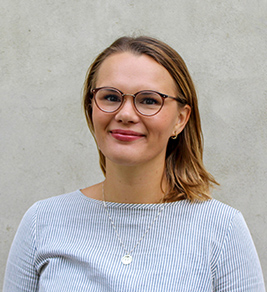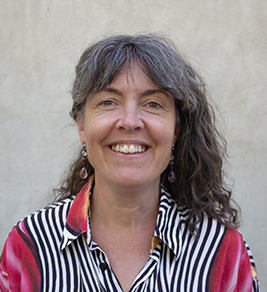Did you know that people in the Nordics buy more clothes than the rest of the world and our consumption has increased by 40 % during the last 20 years? The Nordic countries often pride themselves on their climate actions, yet we continue to consume textiles in an unsustainable way.
Textile production accounts for 10 % of global carbon emissions, exceeding those from international flights and maritime shipping. And the Nordic countries are no exception. The average person in the Nordic Region buys and wears an astonishing amount of clothing each year: Between 26 and 48 garments per person. We throw away around 11 kilograms of textiles every year, with less than 1 % being recycled.
The first step one can take is to have a look in one’s own wardrobe, says Swedish sustainable fashion expert Jennie Dahlén
“Most people own a lot of clothes with the average Swedish wardrobe containing about 160 items. It’s important to make the most of what we already have and get better at styling and utilizing the clothes we own.”
There is a need for a paradigm shift
Upcycling, mending, swapping, and borrowing clothes with each other are other strategies Dahlén advocates for. But we also need to change our perception of consumption.
“Everything around us signals that we should consume more. We need to show that this isn’t necessary. Instead, we could be more creative and experiment with our personal style.”
Regarding necessary legislation for a more sustainable fashion industry, Dahlén points to upcoming EU laws and Swedish efforts to manage textile waste.
“It’s crucial to remove the worst-quality clothing from the market and design products that last,” she argues, suggesting economic incentives for repair and recycling over new purchases.
Look for the Nordic Swan Ecolabel when you buy something new
When it comes to choosing high-quality clothes, ecolabelling can be of big help for the consumer. The Nordic Swan Ecolabel is one of the world’s toughest environmental certifications and is only awarded to products meeting ambitious environmental requirements. When found on clothes and other textiles, it assures resource efficiency, reduced climate impact and conservation of biodiversity – always with tough requirements on harmful chemicals. The entire lifecycle is considered, from raw materials, production, and use to reuse, recycling and waste.
“The textile industry has an urgent need for change. And there’s no doubt that the most sustainable piece of clothing is the one that already hangs in your wardrobe. If buying new, prioritize items with the Nordic Swan Ecolabel for ethical production, optimal environmental practices, and materials such as organic, recycled, or renewable fibers”, says Linnéa Hallgren, project manager at the Nordic Swan Ecolabel.
Nordic collaborative campaign urges consumers to break up with fast fashion
This Black Friday, the call to action is clear: Consume less, choose new products wisely, and start by opening your own wardrobe and using what you already have. This is the message from the new Nordic campaign “Escaping Fast Fashion” by Nordregio, Youth for Sustainable Living, the Nordic Swan Ecolabel, and The Nordic Council Environment Prize.
The campaign Escaping Fast Fashion – How you can act for change, includes a social media campaign consisting of collaborations with green influencers across all Nordic countries, and a series of events focused on sustainable fashion. These events, taking place in Iceland, Sweden, Denmark, Åland and Lithuania, will feature keynote talks and mending workshops, promoting the concept of repairing and reusing clothing as a sustainable practice.
The goal of the campaign is to provide practical, actionable advice and inspiration for adopting a more environmentally conscious approach to fashion. By partnering with influencers and collaborating with several Nordic-Baltic organizations, the campaign aims to reach a broad audience, highlighting the environmental benefits of choosing eco-friendly clothing and the importance of reducing waste in the fashion industry.
The campaign culminates with an event on Thursday, November 23, which you can follow online. Here, politicians, activists, and researchers will discuss how the Nordic countries can become even better at consuming textiles in a more sustainable way. Read more here and follow the stream here!



